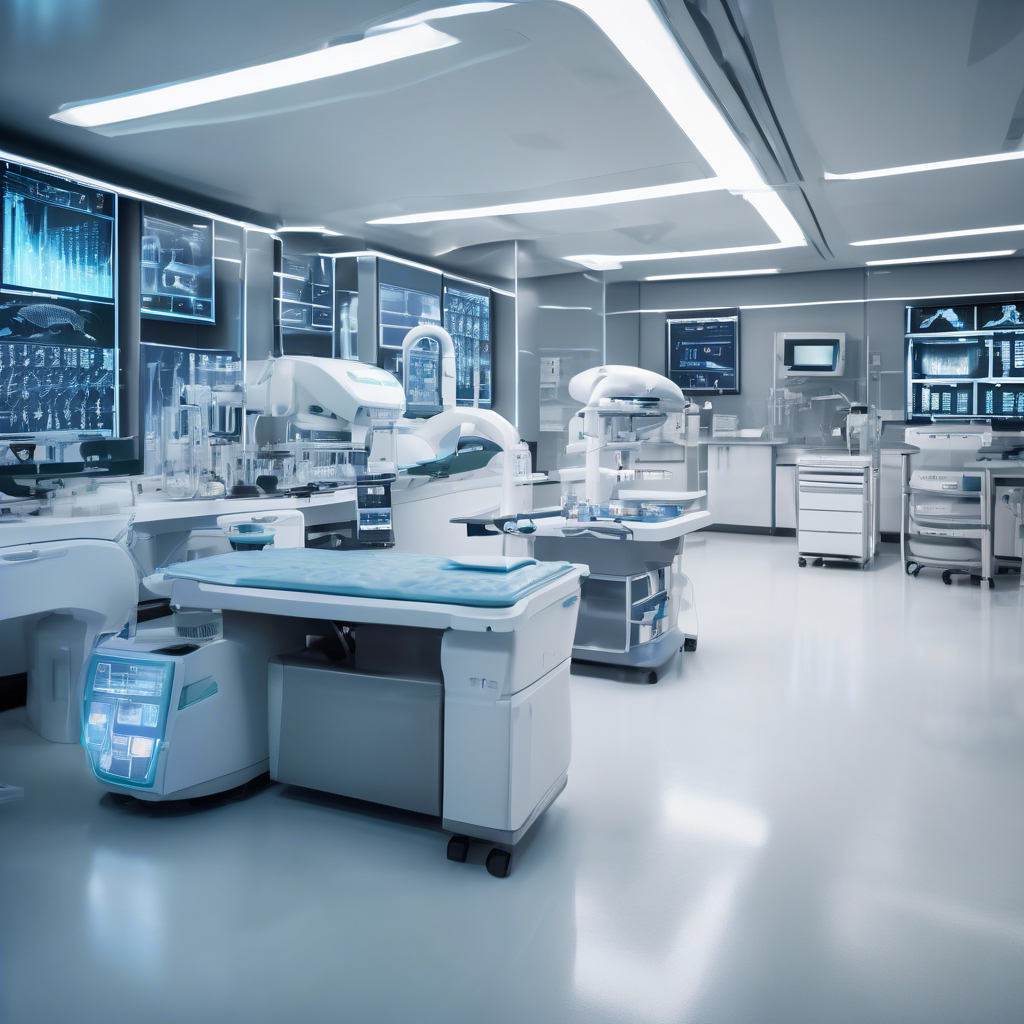Transforming Healthcare with Machine Learning: Enhancing Diagnostic Accuracy and Early Disease Detection

Brief news summary
Machine learning algorithms are revolutionizing healthcare by enhancing diagnostic accuracy through sophisticated analysis of complex medical images and patient data. These AI systems identify patterns that clinicians may overlook, enabling earlier and more precise diagnoses that improve patient outcomes and lower costs. They are particularly effective in early disease detection, recognizing subtle signs for timely treatment. In radiology, AI aids in detecting tumors and fractures in X-rays, CT scans, and MRIs, demonstrating significant potential. By integrating electronic health records with genetic information, AI supports personalized therapies and improved chronic disease management. Nonetheless, challenges such as the “black box” nature of models hinder transparency and trust. Addressing these issues requires rigorous validation, regulatory oversight, diverse datasets to minimize bias, and seamless integration into clinical workflows. Training healthcare professionals and fostering collaboration among clinicians, data scientists, and regulators are crucial to developing standards and best practices. Despite obstacles, machine learning offers immense promise to augment clinical expertise, optimize healthcare delivery, and provide more effective, individualized patient care.Machine learning algorithms are transforming healthcare by greatly improving diagnostic accuracy. These cutting-edge technologies process complex medical imaging and patient data to uncover patterns and anomalies that might be overlooked by human clinicians. By harnessing extensive datasets and advanced computational models, AI systems support healthcare professionals in making more accurate and timely diagnoses, potentially revolutionizing patient care. A key area where machine learning shows great promise is in the early detection of diseases. Early diagnosis is essential for effective treatment and better patient outcomes. Machine learning algorithms can detect subtle disease indicators that human observation might miss, allowing for earlier interventions that can save lives and decrease healthcare costs. For instance, in radiology, AI-powered tools have demonstrated strong capability in accurately identifying tumors, fractures, and other abnormalities in X-rays, CT scans, and MRIs. Additionally, these algorithms can analyze vast amounts of patient data, including electronic health records, laboratory tests, and genetic information, to generate comprehensive diagnostic insights. By integrating various data sources, AI provides a holistic view of a patient’s health, enabling clinicians to tailor treatments and manage chronic conditions more effectively. Despite these benefits, integrating AI into clinical workflows poses significant challenges. A major concern is the transparency of these systems.
Machine learning models, especially deep learning, often operate as ‘black boxes, ’ making their decision-making processes difficult to interpret. This lack of clarity can impede clinicians’ trust and acceptance, as medical professionals need to understand and justify diagnostic choices. Building trust in AI diagnostic tools requires rigorous validation, regulatory approval, and ongoing monitoring to ensure patient safety. It is critical that these models are trained on diverse and representative datasets to prevent biases that might cause disparities in healthcare outcomes. Furthermore, seamless integration into existing clinical practices is vital to avoid disruptions and to complement rather than replace human expertise. Healthcare providers also need proper training to use AI tools effectively and to interpret their results accurately. Collaboration among data scientists, clinicians, and regulatory agencies is essential to establish standards and best practices for implementing AI in healthcare environments. In summary, machine learning algorithms offer a groundbreaking opportunity to enhance diagnostic precision and advance early disease detection, leading to improved patient outcomes. While challenges related to transparency, integration, and trust remain, ongoing technological progress and collaborative efforts are setting the stage for AI to become a dependable partner in healthcare delivery. As this technology advances, it is poised to augment human expertise, streamline clinical workflows, and ultimately support more effective and personalized medical care.
Watch video about
Transforming Healthcare with Machine Learning: Enhancing Diagnostic Accuracy and Early Disease Detection
Try our premium solution and start getting clients — at no cost to you

I'm your Content Creator.
Let’s make a post or video and publish it on any social media — ready?
Hot news

AI Video Content Moderation Tools Combat Online H…
Social media platforms are increasingly employing artificial intelligence (AI) to improve their moderation of video content, addressing the surge of videos as a dominant form of online communication.

US revisits its export curbs on AI chips
POLICY REVERSAL: After years of tightening restrictions, the decision to permit sales of Nvidia’s H200 chips to China has sparked objections from some Republicans.

AI was behind over 50,000 layoffs in 2025 — here …
Layoffs driven by artificial intelligence have marked the 2025 job market, with major companies announcing thousands of job cuts attributed to AI advancements.

Perplexity SEO Services Launched – NEWMEDIA.COM L…
RankOS™ Enhances Brand Visibility and Citation on Perplexity AI and Other Answer-Engine Search Platforms Perplexity SEO Agency Services New York, NY, Dec

Eric Schmidt's family office invests in 22 AI sta…
An original version of this article appeared in CNBC's Inside Wealth newsletter, written by Robert Frank, which serves as a weekly resource for high-net-worth investors and consumers.

Future of Marketing Briefing: Why 'just good enou…
Headlines have focused on Disney’s billion-dollar investment in OpenAI and speculated why Disney chose OpenAI over Google, which it is suing over alleged copyright infringement.

Salesforce Data Reveals AI and Agents Drive Recor…
Salesforce has released a detailed report on the 2025 Cyber Week shopping event, analyzing data from over 1.5 billion global shoppers.
AI Company
Launch your AI-powered team to automate Marketing, Sales & Growth

and get clients on autopilot — from social media and search engines. No ads needed
Begin getting your first leads today








